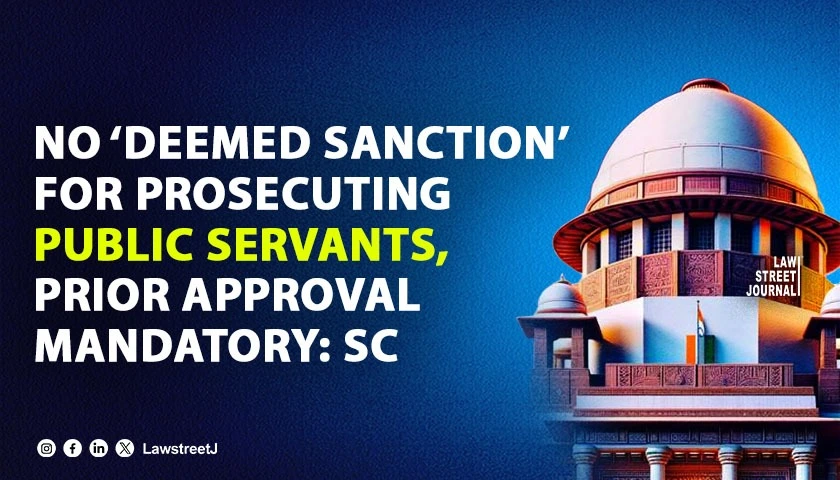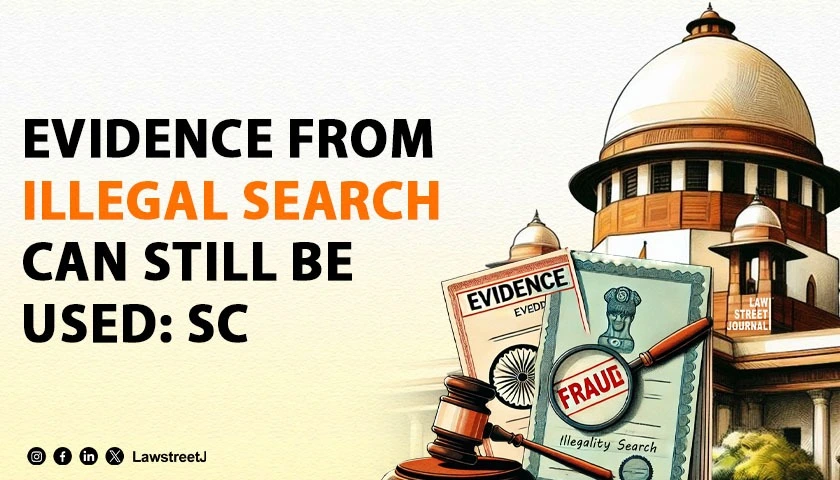NEW DELHI: The Supreme Court has said a concept like 'deemed sanction' has yet not been incorporated in the statute, so a prior sanction for the prosecution of public servants for their acts committed in discharge of duties is a condition precedent to the cognisance of the cases against them by the courts.
SC Clarifies No Automatic Sanction for Public Servant Prosecution
A bench of Justices B V Nagarathna and Satish Chandra Sharma clarified there is no concept like deemed sanction in the statute, while rejecting a contention for deemed sanction over delay or refusal by the competent authority to grant sanction.
Referring to Section 197 of CrPC, the bench said it does not envisage a concept of deemed sanction.
Supreme Court Quashes Case Against Ex-FSSAI Director Over Lack of Sanction
The top court quashed a charge sheet, summoning order and other consequent steps taken against Suneeti Toteja, then FSSAI director due to refusal of sanction.
The court allowed the plea by the petitioner against the Allahabad High Court's order dismissing her petition filed under Section 482 of the Criminal Procedure Code to quash the criminal proceedings.
The Lucknow police filed a charge sheet against the appellant on the basis of a statement by an associate director, who alleged that the petitioner as presiding officer of Internal Complaints Committee under the POSH Act set up to probe her complaint of sexual harassment, threatened and pressurised her to withdraw the case.
The Bureau of India Standards rejected UP police's request for sanction for prosecution of the appellant. It found that the appellant was in no way related to the allegations made in the charge sheet and thus it was not a fit case for grant of sanction for prosecution.
In its arguments opposing the plea by the appellant before this court, the Uttar Pradesh government relied upon the judgment of the Supreme Court in Vineet Narain Vs Union of India, (1998) to contend that the time limit of three months for grant of sanction for prosecution has to be strictly adhered to.
It also said since no sanction was granted by the competent authority within the stipulated time period, the state was correct in proceeding on the basis of deemed sanction.
Appearing for complainant, advocate Prashant Bhushan cited Subramanian Swamy Vs Manmohan Singh (2012), to contend that if no decision is taken by the sanctioning authority, then at the end of the extended time limit, sanction will be deemed to have been granted to the proposal for prosecution.
The court dealt with the two judgments relied upon by the respondents.
With regard to Vineet Narain case, the bench pointed out, it did not deal with Section 197 CrPC and rather it dealt with the investigation powers and procedures of CBI and the Central Vigilance Commission.
"While it did mention that the time limits for grant of sanction for prosecution must be strictly adhered to, there is no observation to the effect that lack of grant of sanction for prosecution within the time limit would amount to deemed sanction for prosecution," the bench said.
So far as Subramanian Swamy case was concerned, the bench said, even the said judgment does not in any manner lay down the notion of deemed sanction. The said judgment dealt primarily with the Prevention of Corruption Act, 1988 and the sanction for prosecution under that Act.
Secondly, the bench pointed out Justice G S Singhvi (since retired) in his separate but concurring opinion had given some guidelines for the consideration of the Parliament, one of which is to the effect that at the end of the extended period of time limit, if no decision is taken, sanction will be deemed to have been granted to the proposal for prosecution, and the prosecuting agency or the private complainant will proceed to file the chargesheet or complaint in the court to commence prosecution within fifteen days of the expiry of the time limit.
However, the court said, such a proposition has not yet been statutorily incorporated by the Parliament and in such a scenario, this court cannot read such a mandate into the statute when it does not exist.

















